Politics
G20 Summit: Brazil’s billionaire tax plan faces pushback
Published
5 months agoon
By
Ekwutos BlogThe G20 summit in Rio aims to build consensus on taxing the super-rich for climate action and poverty relief. But as geopolitical issues take priority, President Lula may struggle to quell skepticism over the proposal.
Brazilian President Luiz Inacio Lula da Silva, hosting the G20 summit in Rio de Janeiro from Monday, will try to progress plans to tax the world’s richest billionaires, who often use complex loopholes to avoid tax.
At a July meeting of G20 finance ministers in Rio, the world’s wealthiest nations agreed to start a “dialogue on fair and progressive taxation, including of ultra-high-net-worth individuals,” despite fierce resistance from the United States and within Germany’s now collapsed coalition government.
While the world’s growing geopolitical issues — the Ukraine and Gaza conflicts, the prospect of a second Trump term in the US and China trade — are expected to dominate the two-day summit, Lula hopes to move the wealth tax plan forward as the money raised from billionaires will help boost other pressing global issues.

Campaigners have called for years for greater scrutiny over how the wealthy avoid taxes
© Fabrice Coffrini/AFP
Advocates say new tax would cause little pain
Devised by French economist Gabriel Zucman, the plan would introduce an annual tax of 2% on the total net worth of the uberwealthy — not just their annual income. This would include real estate assets, corporate shareholdings and other investments. Zucman estimates that the top 0.01% of the population pay an effective tax rate of just 0.3% of their wealth.
The new levy could raise up to $250 billion (€237 billion) a year from the nearly 2,800 billionaires globally, who have a combined net worth estimated at some $13.5 trillion, according to the Forbes Richest World’s Billionaires List. The funds raised would be used to tackle growing global inequalities, especially among heavily indebted low-income countries, including many in Africa.
“The taxation of high net-worth individuals is very important as it could be a source for funding initiatives that fight hunger and poverty, and also tackle climate change,” Tomas Marques, a research fellow at Hamburg’s GIGA Institute for Latin American Studies, told DW.
Developing nations, who many scientists say are being disproportionately affected by climate change, have for years demanded funding to offset its worst impacts. Success stories include World Bank and Green Climate Fund support for India’s bid to boost solar power capacity and Brazil’s Amazon Fund, aimed at reducing deforestation, which is part-funded by Norway and Germany.
Skepticism over G20 spending plans
While there may be broad public support for new taxes on the ultra-wealthy, the rise of national populism in many G20 countries is increasing scrutiny about how public money is spent, amid concerns that international aid and development funds could be better deployed at home.
“Most of the G20 countries are having a hard time balancing their budgets,” Maria Antonieta Del Tedesco Lins, an economist and associate professor at the University of Sao Paulo, told DW. “While extra taxes would help, it’s very hard to juggle national pressures with new international or multilateral obligations.”
Monday’s opening ceremony in Rio will launch the Global Alliance Against Hunger and Poverty, an initiative under Brazil’s G20 presidency that seeks to accelerate efforts in the fight against poverty and a lack of food by 2030.
The Brazilian government is also the principal backer of the proposed tax on the ultrawealthy, along with France, Spain and South Africa. Despite this support, the lower house of Brazil’s parliament, the Chamber of Deputies, last month rejected plans for an additional domestic levy on those with large fortunes.
“It’s a shame because Brazil could benefit a lot [from this tax] because we are a very unequal country. If there was an international consensus [on taxing the superrich] it could help negotiations in the Brazilian Congress,” said Lins, who took part in a G20 academic engagement group ahead of the summit.
In Brazil, as in the rest of the world, the wealthy often shield their wealth from tax authorities by creating shell companies in countries with low or zero taxes, taking advantage of banking secrecy laws and forming trusts and charitable foundations, which offer generous tax breaks.
US spurns wealth-tax proposal
While China’s and India’s positions on the new tax are ambiguous, Washington remains firmly opposed. US Treasury Secretary Janet Yellen told the Wall Street Journal in May that the measure was “something we can’t sign on to.”
President-elect Donald Trump has yet to comment on the proposal but is unlikely to back hiking taxes on the uber-rich. His first term was marked by large tax cuts — which benefited wealthy individuals and corporations the most. But during his short-lived run for the White House in 2000, he did promise to cut the national debt by levying a one-time 14.25% tax on the wealthy.
Lula then faces tough odds in making any meaningful progress during the two-day summit, especially as many critical geopolitical issues, as well as Brazil’s proposal to improve global governance will also dominate the talks.
“Lula is a great negotiator,” Marques said. “He bills himself as a bridge builder between the Global South and Global North. But I don’t know how he can reach a consensus around this very sensitive topic.”

Brazilian President Luiz Inacio Lula da Silva is a shrewed negotiator, who is determined to push ahead with higher taxes on billionaires
© Erica Martin/TheNEWS2/picture alliance
Wealth tax — a boon for Africa
Better representation at G20 for Africa is now critical, as the continent seeks to benefit from any new tax plan, through the receipt of poverty and climate alleviation funds. The African Union, the regional bloc of 55 African countries, will be attending the Rio summit for the first time, after being admitted as a full G20 member in August.
Next year, South Africa will take over the rotating G20 presidency — the fourth consecutive leadership of the bloc from the Global South, after Indonesia, India, and Brazil. The role will give the country and Africa as a whole further opportunities to shape global policies and advocate for the continent’s interests.
“African countries have been underrepresented in the G20 despite the continent’s importance globally,” Marques, who is in Rio for the summit, told DW. “But things are changing, and the African Union is now starting to have some influence on policymaking.”
Edited by: Uwe Hessler
Author: Nik Martin
You may like
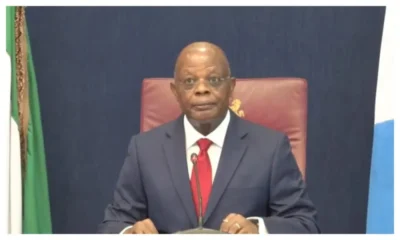

Despite criticism, Ibas swears in sole administrators for Rivers LGAs


Kano lawyer petitions Tinubu over ‘politically motivated’ police invitation of Emir Sanusi
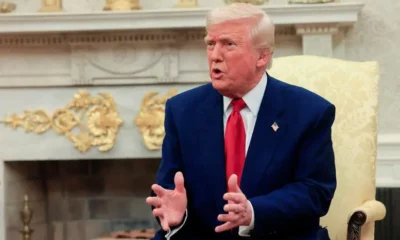

U.S withdraws military aid from Niger, redirects to Côte d’Ivoire, Benin, Ghana
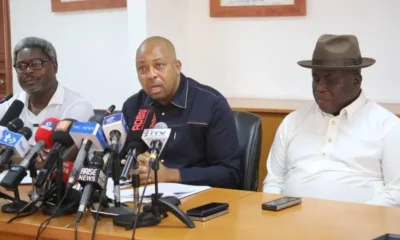

FCT Minister rolls out major land administration reforms, introduces strict timelines for allottees
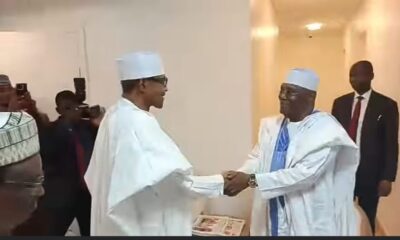

Atiku, El-Rufai, Tambuwal visit Buhari in Kaduna


Rivers govt debunks civil service recruitment announcement
Politics
Atiku, El-Rufai, Tambuwal visit Buhari in Kaduna
Published
59 minutes agoon
April 11, 2025By
Ekwutos Blog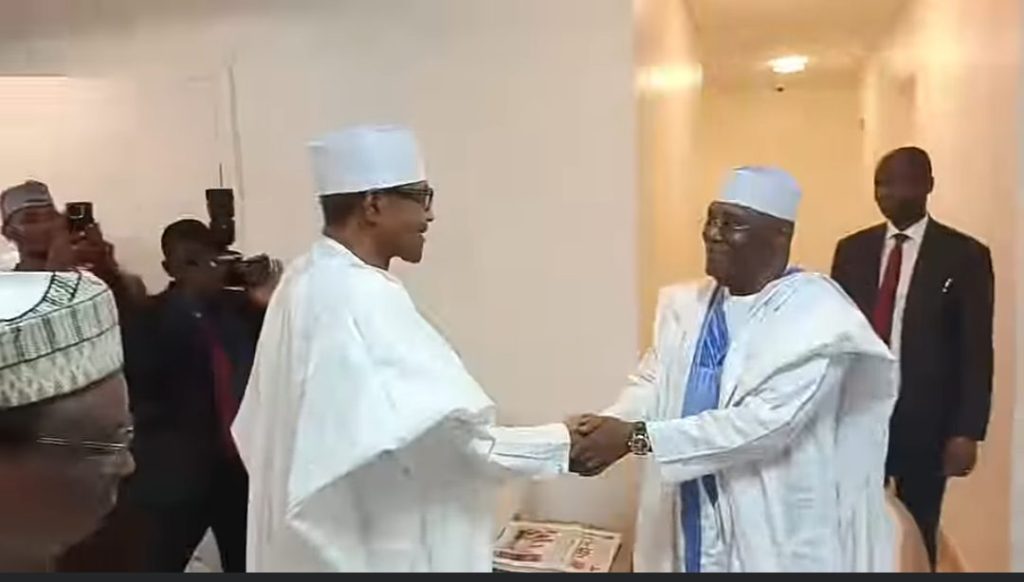
Former Vice President and 2023 PDP presidential candidate, Atiku Abubakar, has visited former President Muhammadu Buhari at his residence in Kaduna.
The visit, which also included former governors Aminu Waziri Tambuwal (Sokoto) and Nasir El-Rufa’i (Kaduna), was captured in a video sighted on the Facebook page of Atiku Abubakar.
Although the specific purpose of the visit was not disclosed, Atiku described it as a “post-Sallah visit.”
In the post, Atiku wrote, “As the Waziri Adamawa, I was obligated to be in Adamawa during the Sallah celebrations. I held forth for the Lamido Fombina (Adamawa) in some of the activities of the Sallah celebrations. Today, I had the opportunity to pay a post-Sallah visit to His Excellency, Muhammadu Buhari, President of the Federal Republic of Nigeria, 2015-2023. It was a wonderful time with him. As usual, he cracked me up (to the extent that my ribs were hurting) with his peculiar humour. -AA”
The visit comes after governors from the All Progressives Congress (APC) paid a similar visit to Buhari in Kaduna last week, amid growing speculation about political realignments and possible coalitions ahead of the 2027 elections.
Politics
Rivers govt debunks civil service recruitment announcement
Published
1 hour agoon
April 11, 2025By
Ekwutos Blog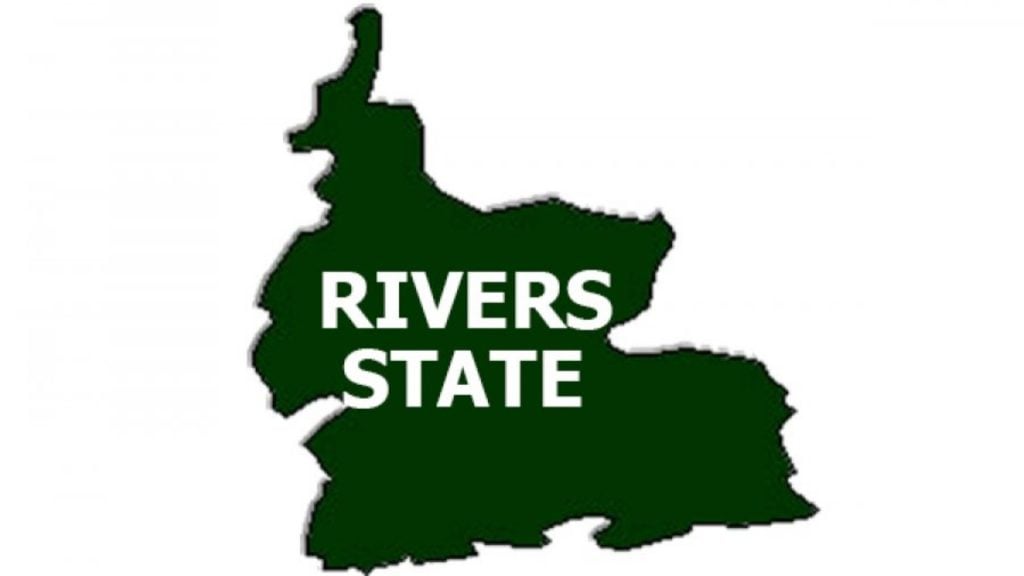
Rivers State Government has refuted a widely circulated social media announcement alleging that the state’s Sole Administrator, retired Vice Admiral Ibok-Ete Ekwe Ibas, approved the recruitment of 10,000 “graduates and non-graduates” into the Rivers State civil service.
On Thursday, social media platform “Facebook”, was flooded with the purported government notice, which falsely claimed that the recruitment exercise had been sanctioned.
The statement was reported to have been signed by the Secretary to the State Government, Professor Ibibia Lucky Worika.
However, in a statement issued by Mrs. Inyingi S. I. Brown, Acting Head of the Rivers State Civil Service, the government described the information as entirely untrue and urged the public to disregard it.
The statement also clarified that any official communication on civil service recruitment would come from the Rivers State Civil Service Commission at the appropriate time.
The statement read, “The Office of the Administrator of Rivers State wishes to disclaim a purported Special Government Announcement spreading round on social media and other platforms stating that His Excellency, The Administrator of Rivers State, Vice Admiral (Rtd) Ibok-Ete Ekwe Ibas CFR, has approved the recruitment of 10,000 qualified graduates and non graduates into the Rivers State civil service and that the recruitment portal shall be opened for application midnight of Sunday 13/04/2025.
“The statement is claimed to have been signed by the Secretary to the State Government, Professor Ibibia Lucky Worika.
“We wish to categorically inform the people of Rivers State and the general public that this is false and ask that this fake announcement be ignored.
“Appropriate information will be released by the Rivers State Civil Service Commission in due time.”
Politics
APC Can’t Take Anambra Like Edo, Imo and Kogi— Gov Chukwuma Soludo
Published
9 hours agoon
April 11, 2025By
Ekwutos Blog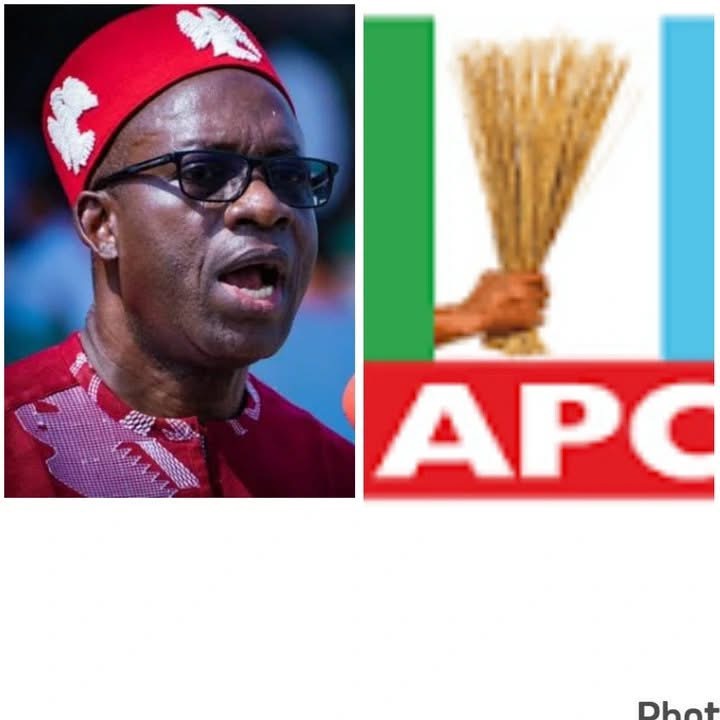
Governor Charles Soludo has dismissed the chances of the All Progressives Congress in the upcoming November 8 Anambra governorship election, declaring that the party lacks the grassroots presence needed to win in the state.
Soludo, who is seeking re-election under the All Progressives Grand Alliance, made the statement during an interview on Arise Television’s Prime Time.
The National Chairman of the ruling APC, Abdullahi Ganduje, had repeatedly stated that the APC had its eyes on southern states under the opposition control, such as Edo, Anambra, Osun and Oyo states.
But the governor stated that APC was able to prevail in states like kogi and imo because the incumbent governor’s got reelected, and they prevailed in Edo because they had grassroot structure.

Despite criticism, Ibas swears in sole administrators for Rivers LGAs

Kano lawyer petitions Tinubu over ‘politically motivated’ police invitation of Emir Sanusi

U.S withdraws military aid from Niger, redirects to Côte d’Ivoire, Benin, Ghana
Trending

 Trending6 months ago
Trending6 months agoNYA demands release of ‘abducted’ Imo chairman, preaches good governance
- Business6 months ago
US court acquits Air Peace boss, slams Mayfield $4000 fine

 Politics6 months ago
Politics6 months agoMexico’s new president causes concern just weeks before the US elections
- Entertainment6 months ago
Bobrisky transferred from Immigration to FCID, spends night behind bars
- Entertainment6 months ago
Bobrisky falls ill in police custody, rushed to hospital

 Politics6 months ago
Politics6 months agoRussia bans imports of agro-products from Kazakhstan after refusal to join BRICS

 Politics6 months ago
Politics6 months agoPutin invites 20 world leaders
- Politics1 year ago
Nigerian Senate passes Bill seeking the establishment of the South East Development Commission.

